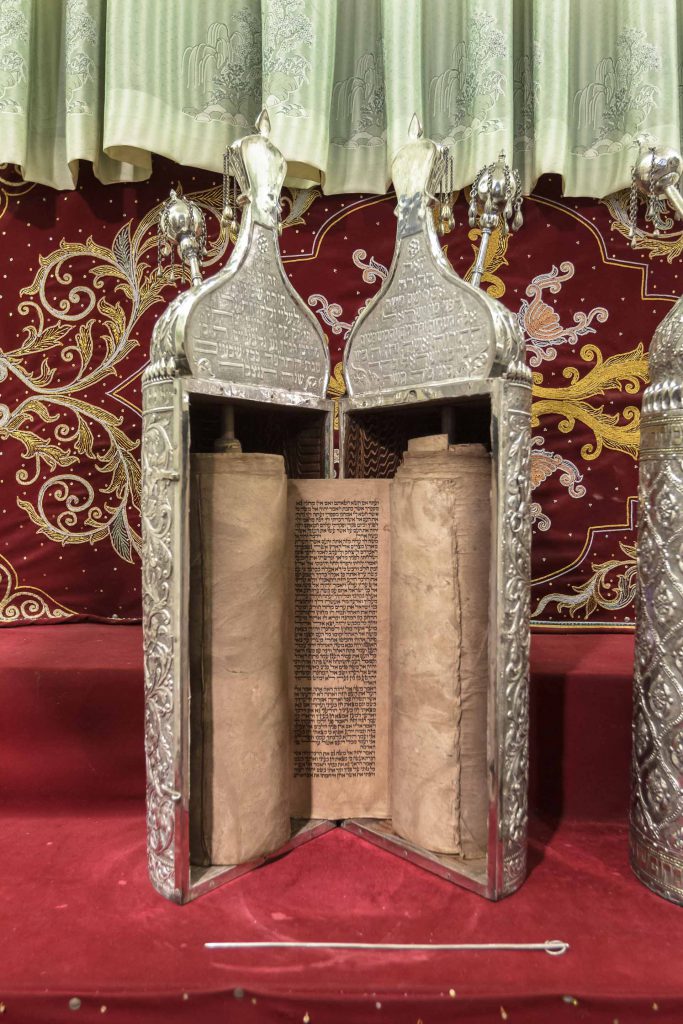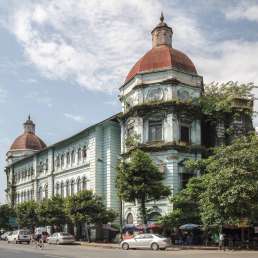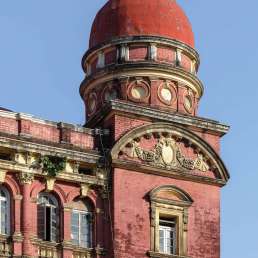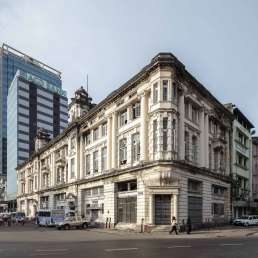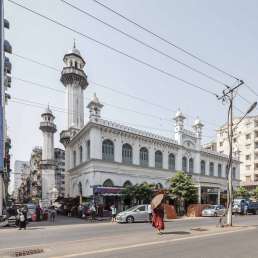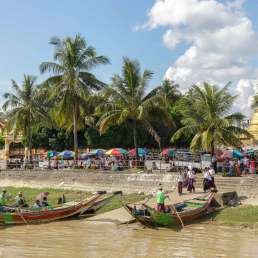Address: 26th Street
Year built: 1896
Architect: Unknown
Built between 1893 and 1896, the Musmeah Yeshua Synagogue today serves only 20 or so Jewish residents of Yangon. But in the early 20th century up until the Second World War, it was the spiritual home of the Sephardic Jewish community who settled in colonial Rangoon, fleeing Ottoman and Iraqi persecution in Baghdad. Their numbers reached around 2,200. Many of them rose to prominence as businessmen, such as Isaac Sofaer who built the iconic Sofaer’s Building. Others served as magistrates, municipal councillors and commissioners. About half of the community fled in the wake of the Japanese invasion in 1942, often embarking on an arduous overland trek to India. This “forgotten march” cost tens of thousands of lives, mainly Indian.
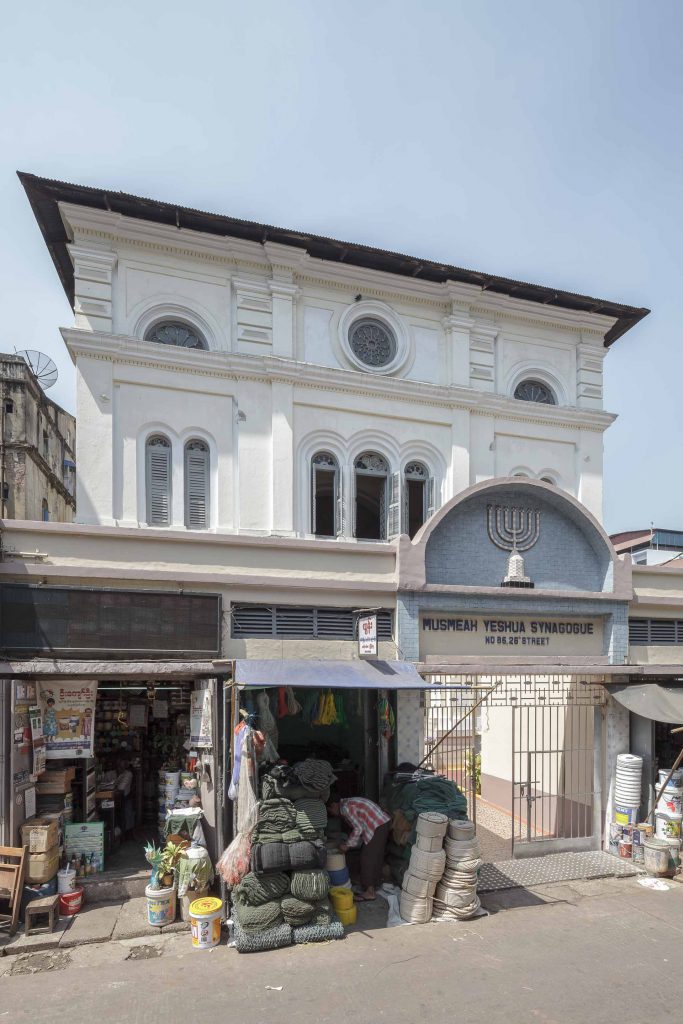
As a result of the war, 1,000 Rangoon Jews settled in Calcutta. Amid post-independence chaos in Burma, most of the remaining Jews emigrated to the newly created state of Israel which, like Myanmar, was founded in 1948. The two countries maintained good relations until Ne Win’s coup in 1962. Burma was the first Asian country to recognise Israel; Burma’s first prime minister, U Nu, travelled to Israel in 1955, becoming the first foreign head of state to do so. Israeli Prime Minister David Ben-Gurion spent two weeks in Burma in 1961. Presidents Ben-Zvi, Meir, Dayan and Peres would also visit the country during their terms.
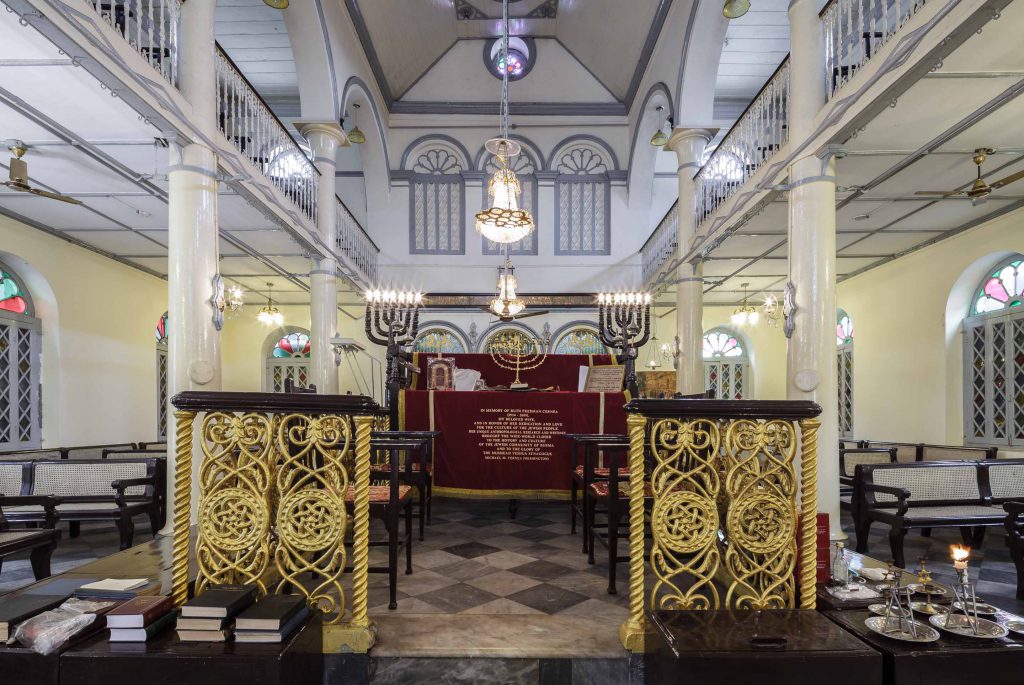
Until recently painted an attractive sky-blue and pale yellow, the synagogue is now white. Set back within a tranquil courtyard, the visitor arrives from an entrance on busy 26th Street, where a menorah adorns the front entrance on a blue tiled background. The inside of the synagogue itself is airy and cool. In a nod to the heat, the benches are cane-seated and fans (along with chandeliers) hang from the ceiling. Note also the arched windows and stained glass.
Although the Jewish population in today’s Yangon is minuscule, the synagogue aims to attract Jewish visitors to Myanmar. One of Yangon’s Jews, Sammy Samuels, describes spending Fridays inside the synagogue with his father in the hope of meeting foreign visitors:
“Every Friday, my father and I used to wait at the synagogue for Jewish visitors until we can gather the minyan (requisite ten people) to begin services. (…) It is my father’s fervent belief that no Jew should be alone during the holidays—and yet most of the time, the two of us found ourselves alone in the synagogue. But even if only he and I are present, I always feel the echoes of the many Shabbat services that took place in this beautiful synagogue and hear the melodies of the songs our ancestors sang when the community was at its peak.”
Sammy Samuels has founded a travel agency, Myanmar Shalom, catering to Jewish tourists.
